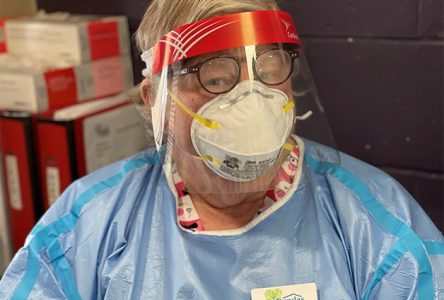CORNWALL, Ontario – A Cornwall mom wants some answers from the Upper Canada District School Board as to why her 10-year-old son is being transferred to an adult learning centre.
Stephanie Lavigne is furious that her son Kaleb, who grapples with attention deficit hypreactivity disorder (ADHD) as well as oppositional defiant disorder (ODD), has not yet seen the inside of a classroom this September.
And when does, he will be schooled alongside teenagers and adults at T.R. Leger, an adult/continuing education centre in Cornwall.
“They just told us that’s the only option for him,” she said. “There’s nothing else they can do for him.”
Kaleb can be a handful at school, to be sure. Lavigne admits he acts out and can be aggressive at times.
“He knows how to be sent home,” said Lavigne. “If he acts out he will be sent home…which is what he wants.”
While Kaleb has always had issues at school, things seemed to go well while he was a student at a day treatment program operated at the former Kinsmen School on Cumberland Street. The program is administered by the Cornwall Community Hospital.
Upon completing that programming Kaleb was transferred to Eamer’s Corners Public School where his behaviour got him into more trouble. Ultimately, said his mom, the decision was to remove him from that elementary school and place him at T.R. Leger.
But even that has been a problem, as a tutor has not yet been retained by the board for Kaleb at T.R. Leger – which means he has been at home while most other children have returned to classes.
“If they can afford to get him a tutor, why can’t they have an EA come in for him in a classroom?” said Lavigne. “He gets very anxious with other kids. He’s never really been in a real classroom.
“And my son is only 10. He doesn’t need to be with teenagers.”
Upper Canada District School Board superintendent Tim Mills said in an interview he could not discuss specific cases the board deals with, citing confindentiality protocols.
But, speaking in general terms, Mills said safety, wellbeing and the ability to learn is paramount.
“We’re committed to all students and will work with all families for the best programming we can,” he said. “We do it as soon as we can with what we can.”
Children with ADHD can be combative because up to 40 percent also develop ODD, a condition marked by chronic aggression, frequent outbursts, and a tendency to argue, ignore requests, and engage in intentionally annoying behavior.
“He’s very aggressive, ” concedes Lavigne. “He has attacked staff and students.”




